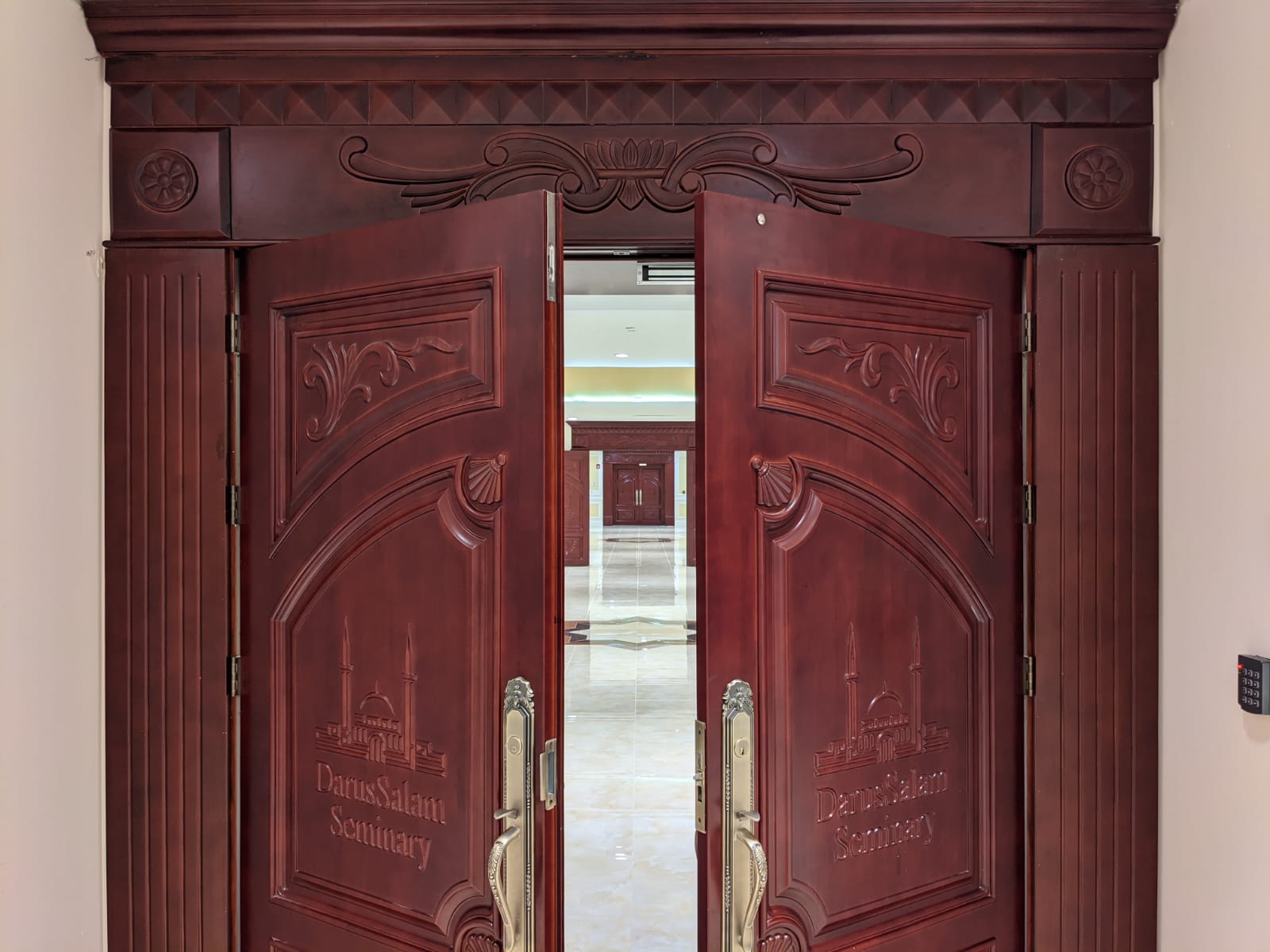Mufti Muhammad Taha Karaan (RA) on Shihab al-Din Harun al-Marjani and Madrasah Reform

بسم الله الرحمن الرحيم
What you mentioned about Marjani’s “Salafi tendencies” brought something else to my mind; something about the pitfalls of reformism. Some time ago I happened to be reading about Islam, specifically ‘ilm and ‘ulama, in Central Asia over the last two centuries, and I came away with impressions which might be of interest to some members of the group.
Shihab al-Din al-Marjani (1818-1889) lived in what was once the Muslim Tatar Khanate of Kazan. Kazan was conquered by Ivan the Terrible in 1552. The Khanate was briefly restored thereafter, but was eventually abolished in 1708. However, even under Russian rule Kazan continued being a centre of learning. The Qur’an was printed in Kazan in 1801, and Hanafi fiqh flourished. It was in Kazan that Mulla Ali Qari’s Fath Bab al-`Inayah Sharh Kitab al-Nuqayah was first published in 1900.
It was here that Shihab al-Din Harun al-Marjani was born in 1818. It was a time when all over the world, Muslims were struggling to come to terms with political subjugation and the disconcerting contrast between past glory and present misery. While the yearning for a better future was probably universal enough, the methods adopted to bring about improvement and reform led to polarisation within the ranks of the ulama in Central Asia. On the one side there were the Qadimists, traditional ulama who maintained their traditions of scholarship and teaching in the ancient manner and form; while on the other hand there were the Jadidists, enthusiastic reformers whose primary focus was the methodology of religious instruction. Marjani was one of these. Musa Jarullah Bigiev, author of al-Washi’ah fi Naqd `Aqa’id al-Shi’ah, belonged to the same group. The methods of teaching Arabic which they advocated were successful enough to elicit the praise of Sayyid Rashid Rida. During Ibn Saud’s 1926 Mecca Conference he met with a delegation from Central Asia whose comfortable and easy use of the Arabic language (compared to the stilted Arabic–if any–spoken by most of the other delegates) earned his admiration.
I would believe that the “Salafi” tendency within Marjani that Mawlana Husain speaks of, is part of a wider reformist mindset. I would also venture to suggest that the publication of a very dalil orientated text like Sharh al-Nuqayah is another manifestation of the Jadidist agenda. As a matter of interest, there are those that would argue that similar tendencies are to be found in the subcontinent’s own great reformer, Shah Waliyyullah, especially in his works al-Insaf and `Iqd al-Jid.
My present purpose, however, is not to dilate upon either the exact dimensions of Jadidist thought or how it compares to reform in the subcontinent. What interests me more is the tension that ensued between the reformist Jadidists and their traditional Qadimist opponents. The Qadimist ‘ulama were closely connected to the old ruling class. The power they held was finely intertwined with that of the khans and the Tatar nobility. And they utilised these connections to stand in the way of Jadidist reform. The power of the khans, however, was on the wane. Czarist Russia was the superior power, and when the reformers found their own khans opposed to their project, it was to the Russian colonial powers that they looked for support. While other Muslim nations were struggling to throw off the yoke of colonialism, the Jadidists of Central Asia (according to Adeeb Khalid in his book The Politics of Muslim Cultural Reform: Jadidism in Central Asia) did not fight to break free from the empire, but sought only to “establish a Central Asian Muslim presence in mainstream Russian life.” In this way a strange and ironic nexus came to exist between the Russian coloniser and the Jadidist reformer: the former bent upon extending the empire, the latter so fired by the zeal of academic reform that he remained oblivious to the capricious nature of political expedience.
The Jadidists capitalized on the turmoil of the 1917 Bolshevik revolution to advance their ideas. Those of them that rose to prominence under the new administration probably thought of using their newfound positions to achieve the aims of Jadidist reform. The limited success they had during the 1920s, however, was destined to be short lived. In the following decade under Stalin their tale comes to the sad conclusion which Adeeb Khalid describes in these words: “Munawwar Qari, Cholpan, Qadiri, Haji Muin, and Ubaydullah Khojaev all disappeared in the Gulag in the 1930s. By 1938, when Fitrat was executed and Fayzullah Khojaev, most famously of them all, mounted the podium at the Great Purge Trial in Moscow as part of the ‘anti-Soviet bloc of rightists and Trotskyites’ to face the fatal charges of counterrevolution and anti-Soviet activity, the Jadid generation had been obliterated. They were replaced by a new generation (the so-called Class of ’38), whose education and worldview had been shaped entirely within the Soviet context.”
There are parallels which may be drawn between the Indian experience and the Central Asian one, and then there are going to be areas of vivid dissimilarity. My point in sharing this narrative, however, is not historical analysis, but a simple lesson. As passionate an advocate of curricular reform as I am, I would also be the first to recognize the danger of allowing that ambition to obscure our vision of other, more important masalih of the Ummah. For the present the madrasah will continue to be the focus of many an interest group.
If reform will be undertaken, let it never be the kind of reform that culminates in the extinction of what it sought to preserve.
Wa nas’alu Llah al-`afiyah.


